- Home
- Jack Higgins
the Valhalla Exchange (1976) Page 12
the Valhalla Exchange (1976) Read online
Page 12
When Mullholland went outside it was snowing gently. He lit a cigarette and stood there, breathing in the clean air. Sergeant-Major Grant approached him with a cup of tea.
'A rotten night, sir.'
'I could have done without it. The bloody war is as good as over, or so they tell us, and here we are, still up to our armpits in blood and destruction. If I sound depressed it's because I've just lost a patient. A bad way to start the day.' He sipped some of the tea. 'How's our German friend?'
'Not too bad, sir. He's been asking for you.'
'All right, Sergeant-Major,' Mullholland said wearily. 'Let's see what he wants.'
Grant led the way down the line of hospital tents and turned into No. 3. Schenck was in the end bed. He lay there, his heavily bandaged arm on top of the blankets. Mullholland unhooked the board from the end of the bed to check on his condition and Schenck's eyes fluttered open.
'Good morning, Herr Major.'
'And how are you today?'
'Alive, it would seem, for which I am grateful. I thought that perhaps the arm ...'
'No, it's fine, or it will be. You speak excellent English.'
'I worked for ten years in the City of London, not far from St Paul's - for an export agency.'
'I see.'
There was a pause, then Schenck said, 'Have you had a chance to consider General Canning's letter?'
Mullholland sat on the edge of the bed, suddenly very tired.
'I'm in something of a difficulty here. This isn't a combat unit. We're medical people. I've been thinking that perhaps the best thing I can do is get on to brigade headquarters and see if they can manage anything.'
'Are they nearby?'
'Last I heard, about twenty miles west of here, but the situation, of course, is very fluid.'
Schenck tried to push himself up. 'Forgive me, Herr Oberst, but time is of the essence in this matter. I must stress that to our certain knowledge, orders from Berlin have gone out authorizing the execution of all prominenti. If the SS reach Arlberg first, then General Canning, your own Colonel Birr and the rest, are certain to die. Colonel Hesser wishes to avoid this situation at all costs and is willing formally to surrender his command immediately.'
'But the area between here and Arlberg is in a very confused state, no one knows that better than you yourself. It would require a fighting unit to get through. They could run into trouble.'
'A small patrol, that's all I ask. A couple of jeeps, perhaps. An officer and a few men. If I go with them to show the best route, we could be there in four hours with any kind of luck at all. They could return at once with the prisoners. General Canning and the others could be here by this evening.'
'And just as much chance that they might run into units of your forces on the way back. They could be taking a hell of a chance, especially the ladies.'
'So, what do you suggest, Herr Major? That they wait for the SS?'
Mullholland sighed wearily. 'No, you're right, of course. Give me half an hour. I'll see what I can work out.'
He went straight to his command tent and sat behind the desk. 'It's a mess, isn't it, but he's right. We've got to do something.'
'I've been thinking, sir,' Grant said. 'What about the three Americans? Captain Howard the Ranger officer and his men?'
Mullholland paused in the act of taking a bottle of Scotch from his drawer. 'The survivors of that mess on the Salzburg road last week? By God, you might have something there. What shape is Howard in?'
'It took about fifty stitches to sew him up, sir, if you remember. Shrapnel wounds, but he was on his feet when I last saw him yesterday and his sergeant and the other bloke weren't wounded.'
'See if you can dig him up and bring him to me.'
Grant went out. Mullholland looked at the whisky bottle for a long moment, then he sighed, replaced the cork and put the bottle back into the drawer, closing it firmly. He lit a cigarette and started on some paperwork. A few moments later, Grant entered.
'Captain Howard, sir.'
Mullholland looked up. 'Fine, Sergeant-Major. Show him in and see if you can rustle up some tea.'
Grant went out and Howard ducked under the flap a moment later. He wasn't wearing a helmet and a red, angry-looking scar bisected his forehead, stopping short of the left eye, the stitches still clearly visible. His left hand was heavily bandaged. He was very pale, the eyes sunken, an expression of ineffable weariness on his face.
My God, Mullholland thought, this boy's had about all he can take and no mistake. He smiled. 'Come in, Captain, sit down. With any luck we might get some tea in a few minutes. Cigarette?'
'Thank you, sir.'
Mullholland gave him a light. 'How are you feeling?'
'Fine.'
Which was as fair a lie as Mullholland had heard in many a day, but he carried on. 'I've got a problem I thought you might be able to help me with.'
Howard showed no emotion at all. 'I see, sir.'
'We carted a German officer in here yesterday with a couple of bullets in him. The unfortunate thing was that he'd been looking for an Allied unit anyway. Had a letter on him from an American general called Canning. Have you heard of him?'
'Hamilton Canning?'
'That's him. He's being held prisoner along with four other prominenti, as the Germans call them.' He pushed the bloodstained letter across the table. 'But you'll find all the details there.'
Howard picked up the letter, read it with lacklustre eyes. Grant came in with two mugs of tea and placed them on the desk. Mullholland motioned him to stay.
After a while, the American looked up. 'They seem to be in a mess, these people. What do you want me to do about it?'
'I'd like you to go and get them. Accept this Colonel Hesser's surrender formally, then return with the prisoners as soon as possible. The German officer who brought this letter, Lieutenant Schenck, is willing to return with you to show you the way. He was quite badly wounded, but I think we can fix him up well enough to stand the trip.'
'You want me to go?' Howard said.
'And those two men of yours. I've been thinking about it. We could give you an ambulance. Plenty of room then for the others for the return trip.'
'Have you any idea what it's like out there, sir, between here and Arlberg?'
'I can guess,' Mullholland said evenly.
'And you want me to go with two men and a crippled German?' Howard's voice was flat, unemotional. 'Is this an order?'
'No, I've no authority to order you to do anything, Captain, as I think you know. The blunt truth is that I just haven't got anyone else available. This is a medical unit, and as you've seen for yourself, we're up to our eyes in it.'
Howard stared down at the letter for a long moment, then he nodded slowly. 'I'll put it to my sergeant, Hoover, and Private Finebaum, if that's all right with you, sir. I think, under the circumstances, they should have some choice in the matter.'
'Fine,' Mullholland said. 'But don't take too long about making your decision, please,' and he used the phrase Schenck had used to him. 'Time really is of the essence in this one.'
Howard went out and Mullholland looked up at Grant. 'What do you think?'
'I don't know, sir. He looks as if he's had it to me.'
'Haven't we all, Sergeant-Major?' Mullholland said wearily.
Finebaum and Hoover shared a pup tent at the end of the rows on the other side of the vehicle park. Hoover was busily writing a letter while Finebaum crouched in the entrance, heating beans in a mess tin on a portable stove.
'Beans and yet more beans. Don't these Limeys eat anything else?'
'Maybe you'd prefer K-ration,' Hoover said.
'Oh, I've got plans for that stuff, Harry.'
Finebaum said, 'After the war, I'm going to buy a whole load of that crap - war surplus, you understand? Then I'm going to take it round to my old grannie who runs a strictly kosher house. So kosher that even the cat's got religion.'
'You mean you're going to feed K-ration to the cat?'
>
'That's it.'
'And break that old woman's heart? I mean, what did she ever do to you?'
'I'll tell you what she did. The day the Japs bombed Pearl Harbor she called me in and said, Mannie, you know what you've got to do, then she opened the front door, pointed me in the general direction of the recruiting office and shoved.'
He spooned beans on to a tin plate and handed it to Hoover. The sergeant said, 'You talk too much, but I know how you feel. I'm bored to hell with this place too.'
'When are we going to get out of here?' Finebaum demanded. 'I mean, I respect and love our noble captain, nobody more so, but how much longer do we stand around and wait for him to find his goddamned soul?'
'You cut that out,' Hoover said. 'He's had about all he can take.'
'In this game there's only two ways to be - alive or dead. Now I've seen a lot of good men go under in the year I've served with you and him. But they're dead and I'm not. I don't rejoice in it, but it's a fact of life and I ain't going to sit and cry over them either.'
Hoover put down his plate. 'Why, you son of a bitch, I've just made a discovery. You're not doing it because you're here or a patriot or something. You're doing it because you like it. Because it gives you kicks like you've never had before.'
'Screw you!'
'What are you after - another battle star? You want to be right up there in the line with those other heroes?'
'What do you want me to do, go back to sewing on fly-buttons in an Eastside cellar for thirty bucks a week when I can't get work blowing clarinet? No thank you. Before I go back to that, I'd rather pull the pin on one of my own grenades. I'll tell you something, Harry.' His voice was low, urgent. 'I live more in a single day, than I did in a year before the war. When my time comes, I hope I take it right between the eyes about one minute before they sign the peace treaty, and if you and the noble captain don't like it, baby, then you can do the other thing.'
He got up and, turning, found Howard listening. They stood there, neither Hoover nor Finebaum knowing what the hell to say. It was Howard who spoke first. 'Tell me, Finebaum - Garland, Anderson, O'Grady - all those other guys in the outfit, all the way across Europe since D-Day? Don't you ever think of them at all? Doesn't the fact of their deaths have any meaning for you?'
'Those guys are dead - so they're dead. Right, Captain? I mean, maybe some part of my brain is missing or something, but I don't see it any other way.'
'And you don't think they accomplished anything?'
'You mean the nobility of war, sir? The strength of our purpose and all that crap? I'm afraid I don't buy that either. The way I figure it, every day for the past 10,000 years, someone, somewhere in the world has been beating hell out of someone else. I think it's in the nature of the species.'
'You know something, Finebaum? I'm beginning to think you might have read a book or two.'
'Could be, Captain. That just could be.'
'All right,' Howard said. 'You want a little action - I've got a pretty large helping for you. Ever heard of General Hamilton Canning?'
He quickly outlined the situation. When he was finished, Finebaum said, 'That's the craziest thing I ever heard of. That's Indian territory out there.'
'Forty or fifty miles of it between here and Arlberg.'
'And they want us to go? Three guys in an ambulance with some kraut stretcher case.' He started to laugh. 'You know, I like it, Captain. Yes, I definitely like it.'
'Okay, so you go and tell Sergeant-Major Grant we're going. Tell him I'll go along in five minutes to speak to this German lieutenant, Schenck, and move it. If we're going we've got to go now.'
Finebaum went off on the double and Howard squatted down and helped himself to coffee from the stove. Hoover said, 'You sure you're doing the right thing? You don't look too good.'
'You want to know something, Harry?' Howard said. 'I'm tired right through to my backbone. More tired than I've ever been in my life, and yet I can't sleep. I can't feel, I don't seem to be able to react.' He shrugged. 'Maybe I need to smell a little gunpowder. Maybe I've got like Finebaum and need it.' He stuck a cigarette between his lips. 'I know one thing. Right now, I'd rather be out there taking my chances than squatting on my backside here waiting for the war to finish.'
The Finns were encamped at a farm just off the main road about ten miles west of Arnheim. There were thirty-eight of them under the command of a Hauptsturmfuhrer named Erik Sorsa.
The 5th SS Panzer Division Wiking was the first, and without a doubt the best, foreign division of the Waffen-SS, composed mainly of Dutch, Flemings, Danes and Norwegians. The Finns had joined in 1941, providing skitroop expertise so essential in the Russian campaign.
The losses on the Eastern Front by January 1945 had been so colossal that it was decided to raise a new regiment, a joint Germanic-Finnish affair. The project had foundered when the few dozen Finnish survivors, with Sorsa as their senior officer, had made it clear that they would not renew their contracts with the German government after May 1. So, from Divisional Headquarters in Klagenfurt, had come the order which had sent them to the farm at Oberfeld to await further instructions, which was what they had been doing for precisely three weeks now.
Sorsa was a handsome, fair-haired young man of twenty-seven. His mountain cap was identical to that of the army in cut, the edelweiss on the left-hand side, the usual SS death's head at the front. His cuff title read 'Finnisches Freiwilligen Bataillon der Waffen-SS' in two lines, and his armshield was black with a white lion. He wore two Iron Crosses, the wound badge in silver and the Winter War ribbon.
He stood at the door of the farm, smoking a cigarette, watching half a dozen of his men ski-ing down through the trees on the hillside above, led by the unit's senior sergeant-major, Matti Gestrin. Gestrin soared over the wall by the barn, jumping superbly, and they followed him one by one with rhythmic precision, tough, competent-looking men in reversible winter war uniforms, white on one side, autumn-pattern camouflage on the other.
'Did you see anything?' Sorsa inquired.
'Were we supposed to?' Gestrin grinned. 'I thought we were just out for the exercise. Still no word from headquarters?'
'No, I think they've forgotten about us.'
Gestrin, in the act of lighting a cigarette, stopped smiling, looking beyond Sorsa's shoulder. 'From the looks of things, I'd say they've just found us again.'
The field car came down the track through the snow, Hoffer at the wheel, Ritter beside him wearing a camouflaged parka with the hood up over his cap. Strasser and Earl Jackson were in the back seat. Hoffer drove into the farmyard and braked to a halt. Sorsa and Gestrin stayed where they were by the front door, but the rest of the Finns moved forward perceptibly, one or two unslinging their Mauser infantry rifles. Sorsa said something quietly to them in Finnish.
'What did he say?' Strasser asked Jackson.
'He said, easy, children. Nothing I can't handle.'
Another dozen or fifteen Finns came out of the barn, mostly in shirt-sleeves and all carrying weapons of one sort or another. There was total silence as everyone waited, just the snow falling perfectly straight, and then, with a sudden whispering rush, another white-clad skier lifted over the wall to land perfectly, skidding to a halt a yard or two away from Sorsa. Another, and yet another followed.
It was poetry in motion, total perfection, and there was a slight fixed smile on Sorsa's face that seemed to say: 'That's what we are. What about you?'
Jackson murmured, 'The greatest skiers in the world, these boys. They knocked hell out of the Russians in the first winter war. And they're great throat-cutters, maybe I should have warned you.'
'Wait here,' Ritter said tonelessly. 'All of you.'
He got out of the field car and walked across the yard to Sorsa. For a moment he confronted the tall Finn, who could see only the death's-head in his cap, then said, 'Not bad - not bad at all.'
'You think so?' Sorsa said.
'A fair jump, certainly.'
'You coul
d do better?'
'Perhaps.'
There were several pairs of skis leaning against the wall. Ritter helped himself, kneeling to adjust the bindings to fit his heavy Panzer boots.
Hoffer appeared at his side and knelt down. 'Allow me, Sturmbannfuhrer.'
Sorsa took in the sergeant-major's black Panzer uniform, the Knight's Cross. There was a sudden change of expression in his eyes and he turned and glanced at Gestrin briefly.
Ritter stamped his feet and took the sticks Hoffer offered him. He smiled. 'A long time, Erich, eh?'
He pushed forward, past the field car, out of the gate, and started up the steep slope through the pine trees. Nobody said a word. Everyone waited. He felt curiously calm and peaceful as he followed the zig-zag of the farm track, totally absorbed, thoroughly enjoying the whole thing.
When he turned, he was perhaps a hundred feet above the yard, the track the Finns had made clear before him. Every face was turned, looking up, and he suddenly felt immensely happy, laughter bubbling up inside him.
He threw back his head and howled like a wolf, the old Harz woodcutters' signal, and launched himself forward, away from the track of the Finns, taking the steepest slope down, zig-zagging through the pine trees in a series of stem turns that were breathtaking in their audacity. And then he lifted, soaring effortlessly over the wall, the field car, drifting broadside for a second only, then turning on his left stick, landing in a spray of snow at a dead halt in a perfectly executed Stem Christiana, no more than a yard from Sorsa.
There was a shout of approval from the Finns. Ritter stood there, Hoffer kneeling to unfasten his bindings for him, then he threw back his hood, unbuttoned the parka and took it off.
'He should have been on the stage, that one,' Strasser whispered to Jackson.
Ritter tightened his gloves and spoke without looking at Sorsa. 'My name is Ritter, Sturmbannfuhrer, 502nd SS Heavy Tank Battalion, and I am here to assume command of this unit under special orders from the Fuhrer himself in Berlin.'
Sorsa looked him over, the Winter War Ribbon, the Iron Cross, First and Second Class, the silver badge which meant at least three wounds, the Knight's Cross with Oak Leaves and Swords, the dark eyes, the pale devil's face on him.

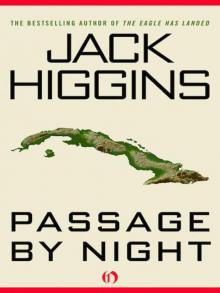 Passage by Night (v5)
Passage by Night (v5)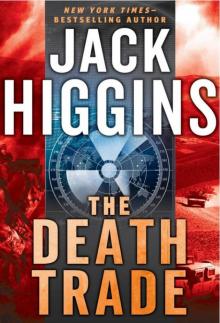 The Death Trade sd-20
The Death Trade sd-20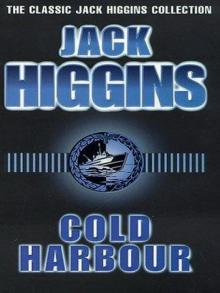 Cold Harbour
Cold Harbour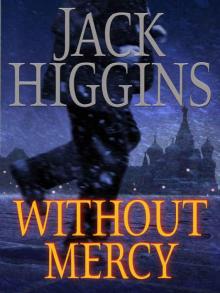 Without Mercy
Without Mercy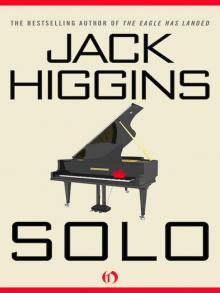 Solo (Aka the Cretan Lover)(1980)
Solo (Aka the Cretan Lover)(1980) First Strike
First Strike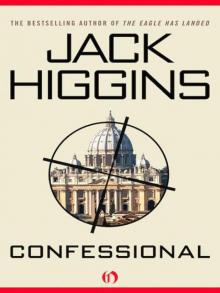 Confessional - Devlin 03 (v5)
Confessional - Devlin 03 (v5)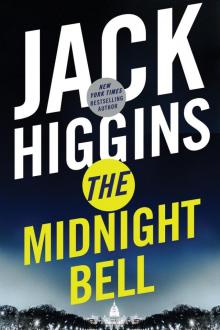 The Midnight Bell
The Midnight Bell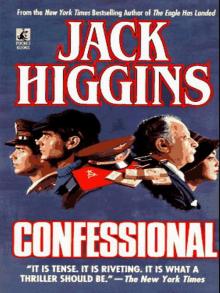 Confessional
Confessional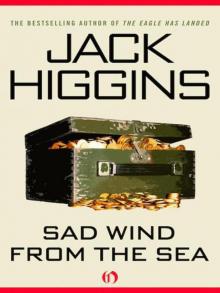 Sad Wind from the Sea (v5)
Sad Wind from the Sea (v5)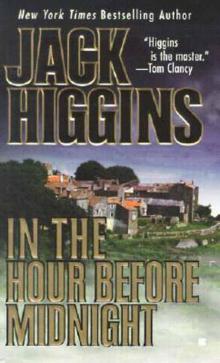 In The Hour Before Midnight aka The Sicilian Heritage
In The Hour Before Midnight aka The Sicilian Heritage Wrath of the Lion
Wrath of the Lion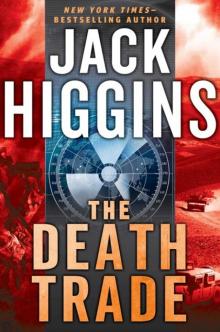 SDillon 20 - The Death Trade
SDillon 20 - The Death Trade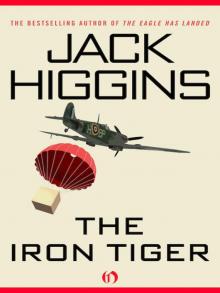 the Iron Tiger (1974)
the Iron Tiger (1974)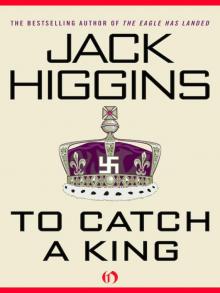 To Catch a King
To Catch a King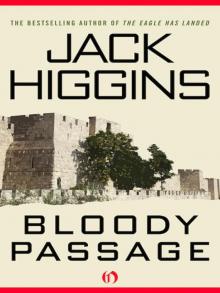 Bloody Passage (1999)
Bloody Passage (1999)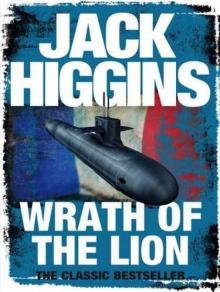 Wrath of the Lion sd-8
Wrath of the Lion sd-8 Sharp Shot
Sharp Shot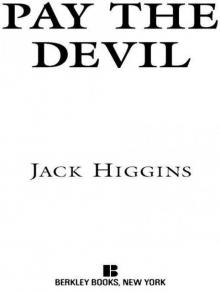 Pay the Devil (v5)
Pay the Devil (v5) A Devil Is Waiting
A Devil Is Waiting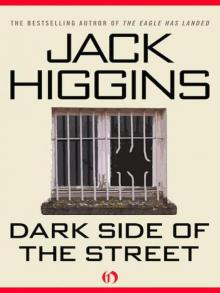 Dark Side of the Street - Simon Vaughn 01 (v5)
Dark Side of the Street - Simon Vaughn 01 (v5)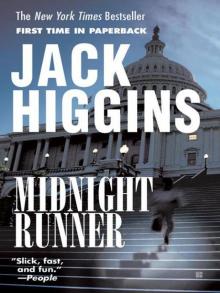 Midnight Runner - Sean Dillon 10
Midnight Runner - Sean Dillon 10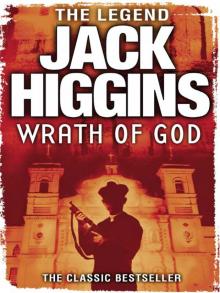 Wrath of God
Wrath of God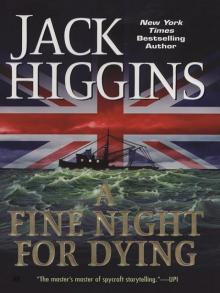 A Fine Night for Dying
A Fine Night for Dying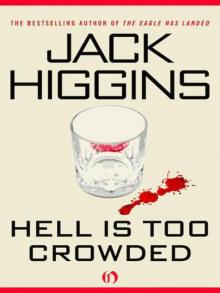 Hell Is Too Crowded v5)
Hell Is Too Crowded v5)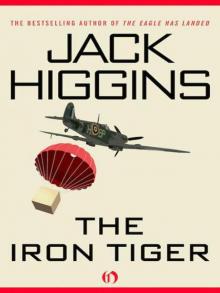 the Iron Tiger (v5)
the Iron Tiger (v5)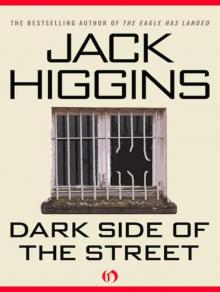 Dark Side of the Street pc-5
Dark Side of the Street pc-5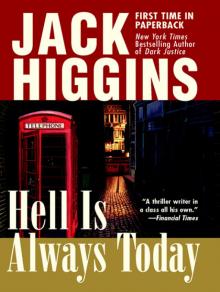 Hell Is Always Today
Hell Is Always Today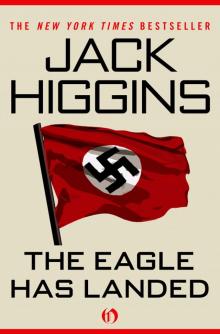 Eagle Has Landed
Eagle Has Landed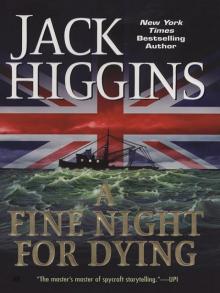 A Fine Night for Dying pc-6
A Fine Night for Dying pc-6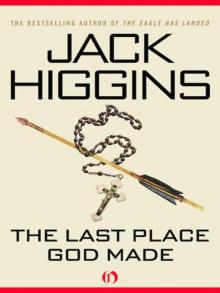 the Last Place God Made (v5)
the Last Place God Made (v5)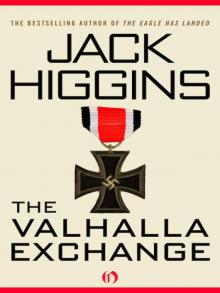 the Valhalla Exchange (1976)
the Valhalla Exchange (1976)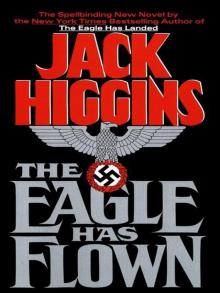 The Eagle Has Flown
The Eagle Has Flown Sure Fire
Sure Fire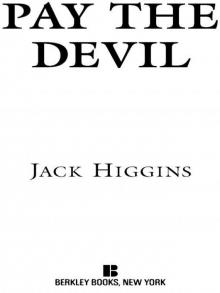 Pay the Devil (1999)
Pay the Devil (1999) Memoirs of a Dance Hall Romeo
Memoirs of a Dance Hall Romeo![a Prayer for the Dying (1974)[1] Read online](http://i1.bookreadfree.com/i1/04/02/a_prayer_for_the_dying_19741_preview.jpg) a Prayer for the Dying (1974)[1]
a Prayer for the Dying (1974)[1]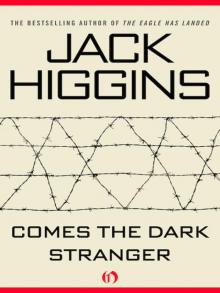 Comes the Dark Stranger
Comes the Dark Stranger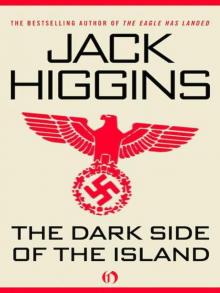 Dark Side Of the Island (v5)
Dark Side Of the Island (v5)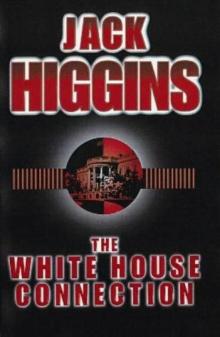 The White House Connection sd-7
The White House Connection sd-7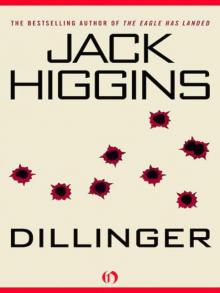 Dillinger (v5)
Dillinger (v5) Eye of the Storm
Eye of the Storm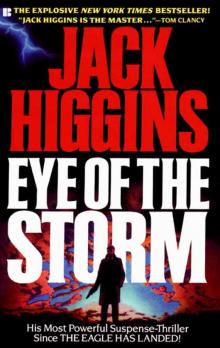 Eye Of The Storm aka Midnight Man
Eye Of The Storm aka Midnight Man A Darker Place
A Darker Place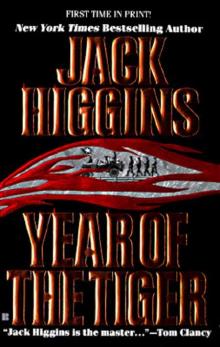 Year Of The Tiger
Year Of The Tiger Death Run
Death Run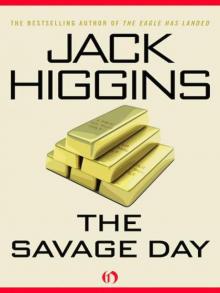 the Savage Day - Simon Vaughn 02 (v5)
the Savage Day - Simon Vaughn 02 (v5)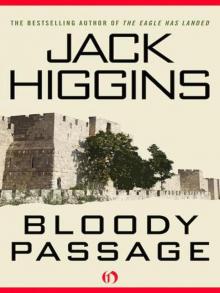 Bloody Passage (v5)
Bloody Passage (v5)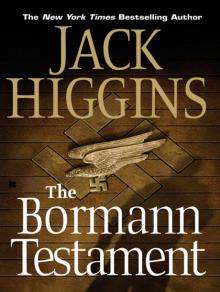 The Bormann Testament
The Bormann Testament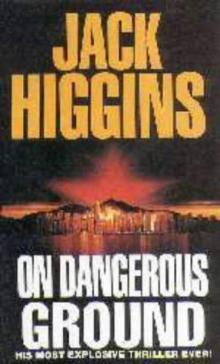 On dangerous ground sd-3
On dangerous ground sd-3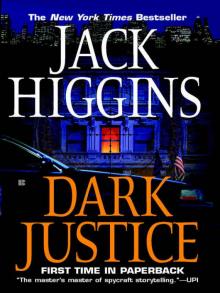 Dark Justice
Dark Justice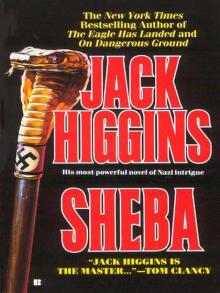 Sheba
Sheba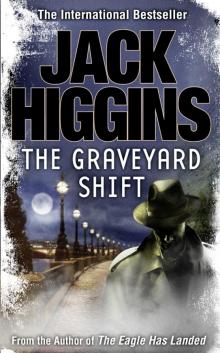 The Graveyard Shift
The Graveyard Shift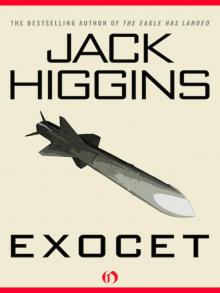 Exocet (1983)
Exocet (1983)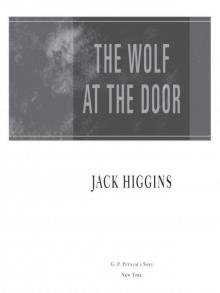 The Wolf at the Door
The Wolf at the Door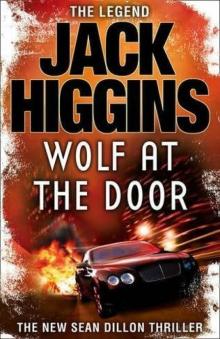 The wolf at the door sd-17
The wolf at the door sd-17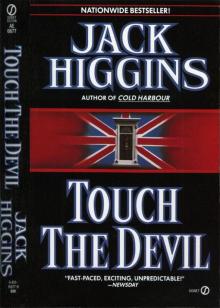 Touch The Devil
Touch The Devil The President’s Daughter
The President’s Daughter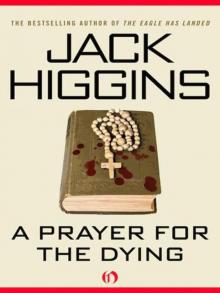 A Prayer for the Dying (v5)
A Prayer for the Dying (v5)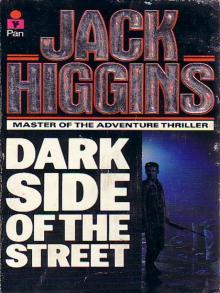 Dark Side Of The Street
Dark Side Of The Street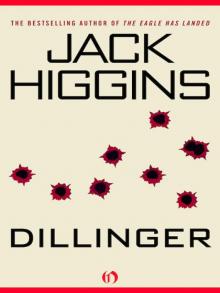 Dillinger (1983)
Dillinger (1983)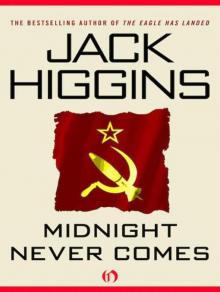 Midnight Never Comes pc-4
Midnight Never Comes pc-4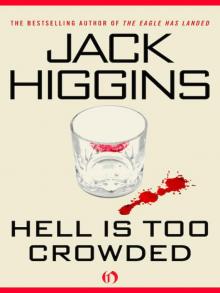 Hell Is Too Crowded (1991)
Hell Is Too Crowded (1991)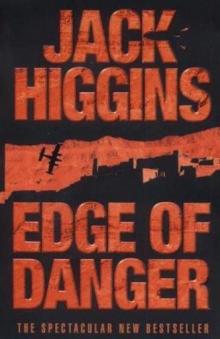 Edge of Danger sd-9
Edge of Danger sd-9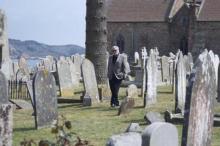 The Thousand Faces of Night (v5)
The Thousand Faces of Night (v5)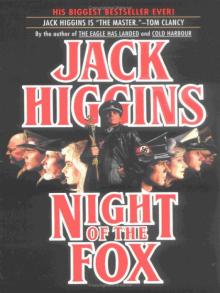 Night Of The Fox
Night Of The Fox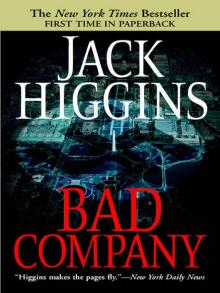 Bad Company
Bad Company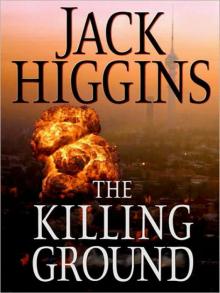 The Killing Ground
The Killing Ground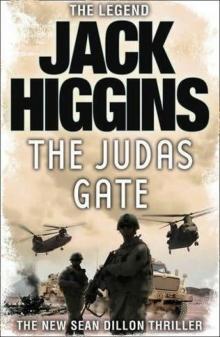 The Judas gate sd-18
The Judas gate sd-18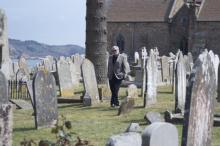 The Thousand Faces of Night (1961)
The Thousand Faces of Night (1961)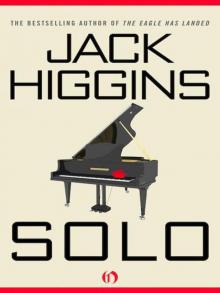 Solo (Aka the Cretan Lover) (v5)
Solo (Aka the Cretan Lover) (v5)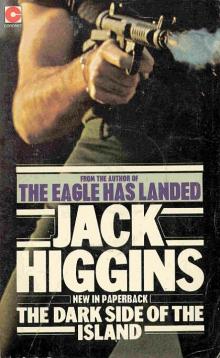 The Dark Side Of The Island
The Dark Side Of The Island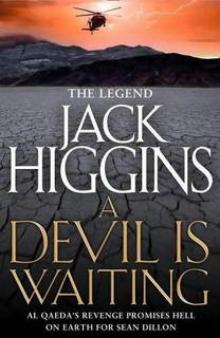 A Devil is vaiting sd-19
A Devil is vaiting sd-19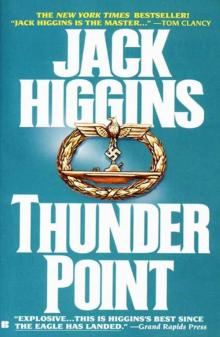 Thunder Point
Thunder Point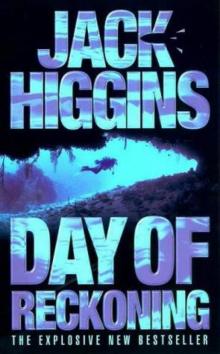 Day of Reckoning sd-8
Day of Reckoning sd-8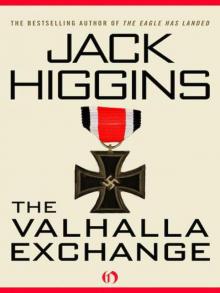 the Valhalla Exchange (v5)
the Valhalla Exchange (v5)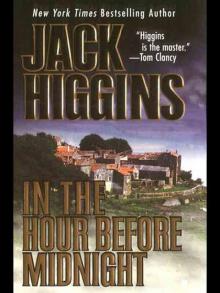 In the Hour Before Midnight
In the Hour Before Midnight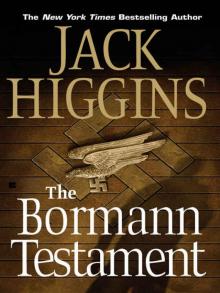 The Bormann Testament (The Testament of Caspar Schultz)
The Bormann Testament (The Testament of Caspar Schultz) The Judas Gate
The Judas Gate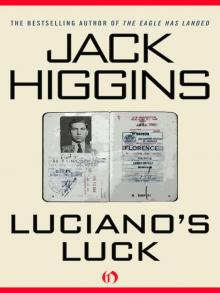 Luciano's Luck
Luciano's Luck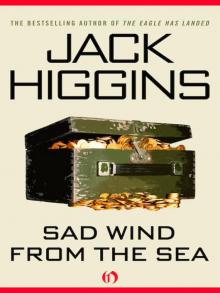 Sad Wind from the Sea (1959)
Sad Wind from the Sea (1959)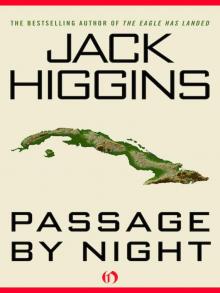 Passage by Night (1987)
Passage by Night (1987)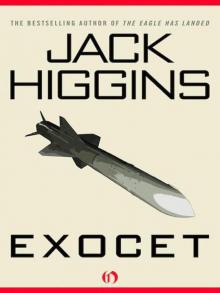 Exocet (v5)
Exocet (v5)